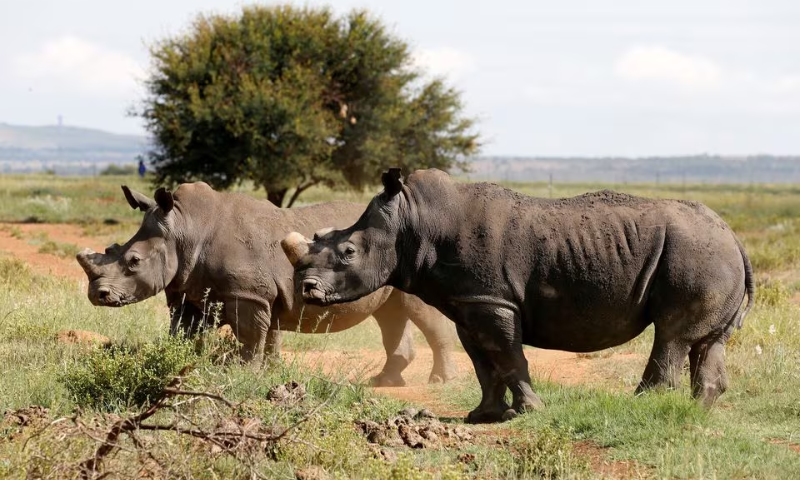JOHANNESBURG, South Africa: South Africa witnessed a troubling surge in rhino poaching last year, with nearly 500 rhinos falling victim to poachers, marking an 11 percent increase from the previous year.
Despite government initiatives to combat the illicit trade in rhino horns, the country continues to grapple with the relentless onslaught of poaching activities, driven primarily by demand from Asian markets.
The majority of rhino killings occurred in state-run parks, with eastern KwaZulu-Natal province bearing the brunt of the crisis.
Notably, Africa’s oldest reserve, the Hluhluwe–Imfolozi park, lost 307 rhinos, marking the highest poaching loss within the province.
While security measures have been tightened in renowned parks like Kruger National Park, resulting in a decline in rhino losses, poachers have increasingly targeted regional and private reserves such as Hluhluwe–Imfolozi. Law enforcement efforts led to the arrest of 49 suspected poachers in KwaZulu-Natal, with 45 poachers and traffickers convicted nationwide.
Despite conservation efforts, rhino horn remains highly coveted in black markets, fetching prices comparable to gold and cocaine. The International Union for Conservation of Nature (IUCN) reported a slight increase in rhino numbers across Africa, offering a glimmer of hope. However, conservationists caution that the gains remain fragile as long as the poaching crisis persists.
South Africa is home to approximately 15,000 rhinos, but the recent spike in killings in KwaZulu-Natal is a cause for grave concern. Conservationists emphasize the urgent need for sustained efforts to combat poaching and protect these iconic species from extinction.























